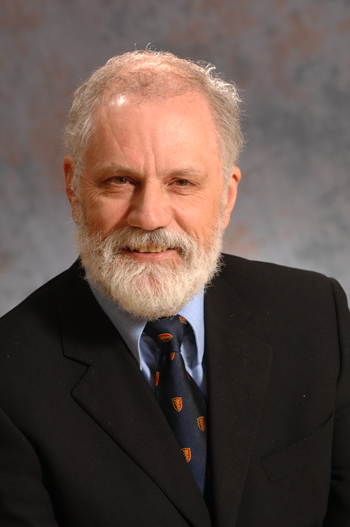
School of Public health professor Louis Francescutti says other provinces should adopt Alberta's model of assisted dying service, but adds more clarity is required about the law's eligibility criteria for physicians who struggle with the vague terminology. (Nick Youngson, https://creativecommons.org/licenses/by-nc-nd/2.0/)
Alberta's Medical Assistance in Dying (MAiD) referral program is a model approach that should be adopted by other provinces, said Louis Hugo Francescutti, a UAlberta professor in the School of Public Health and emergency room physician.
"If you want to end your life, then you should have ease of access to the services like any other health service. Nationally, that's just not the case. There are places in Canada where patients don't even know where to go to begin the process," said Francescutti, who is also an adjunct professor in the Faculty of Medicine and Dentistry.
He examined the quality of services for patients with James Downar of the University Health Network in Toronto. They found a patchwork of services across the country a year after the MAiD law came into effect in June 2016.
"Alberta's services are pretty well thought out and provide patients with a network of health-care providers who will help them through this journey. It meets standards other provinces should aspire to," he added.

Expand Alberta's model nationally
In a commentary in the Canadian Medical Association Journal, they called for other provinces to adopt Alberta's model of service, adding more clarity is required about the law's eligibility criteria for physicians who struggle with the vague terminology.
"Ontario is moving to Alberta's model, which has four dedicated full-time coordinators who handle any medical assistance in dying request from a physician or a member of the public," said Francescutti. "But nationally, there is uneven access to services and other provinces should follow Ontario's suit in reducing the burden on all physicians, whether they are conscientious objectors are not."
In the Alberta model, anyone can call 811 and be referred to an Alberta Health Services employee who will assist them to learn more about MAiD, and connect them with willing providers of the service in their area.
Without similar services in other provinces, Francescutti says patients are not getting the best service and may not feel like they have the right to change their mind right up until the last minute.
"Many elderly people are of the mindset to not be a burden to loved ones. Given the obstacles some health-care practitioners have to jump through to provide MAiD, by the time the day comes, the patient may feel like they can't change their mind.
"The most important thing is to make sure every patient is given every last opportunity to fully understand how the system works, and that they are in control right up until the last second drugs are given, and that they can say, 'I chicken out,' and no one is going to say, 'Well, that was a lot of inconvenience.'"
Clarity in criteria required
He added there is also a risk that those health-care practitioners who are currently willing to provide MAiD may decide to not deal with the obstacles they face-namely, navigating unclear eligibility criteria.
Currently, for someone to be eligible for MAiD, they must meet each of the following five criteria: be eligible to receive health services from a Canadian jurisdiction, be at least 18 and able to make health-care decisions for themselves, have a grievous and irremediable medical condition from which you experience unbearable physical or mental suffering, make a voluntary request for medical assistance in dying, and give informed consent.
"Suffering is very difficult to assess because what might be suffering to one person is not suffering to another," said Francescutti.
A report from Quebec indicated rates of MAiD approval vary between 28 and 79 per cent regionally. "The same report indicated physicians were noncompliant with MAiD regulations in 14 per cent of cases, which is eyebrow-raising because doctors thought they were compliant with the rules."
Francescutti contends that health-care practitioners need to convene across the country to look for clearer wording, and that a system needs to be established to collect and develop data to help health-care practitioners better determine who is eligible.
"This is even more important as we push to expand eligibility to include mentally ill and mature minors," he added.